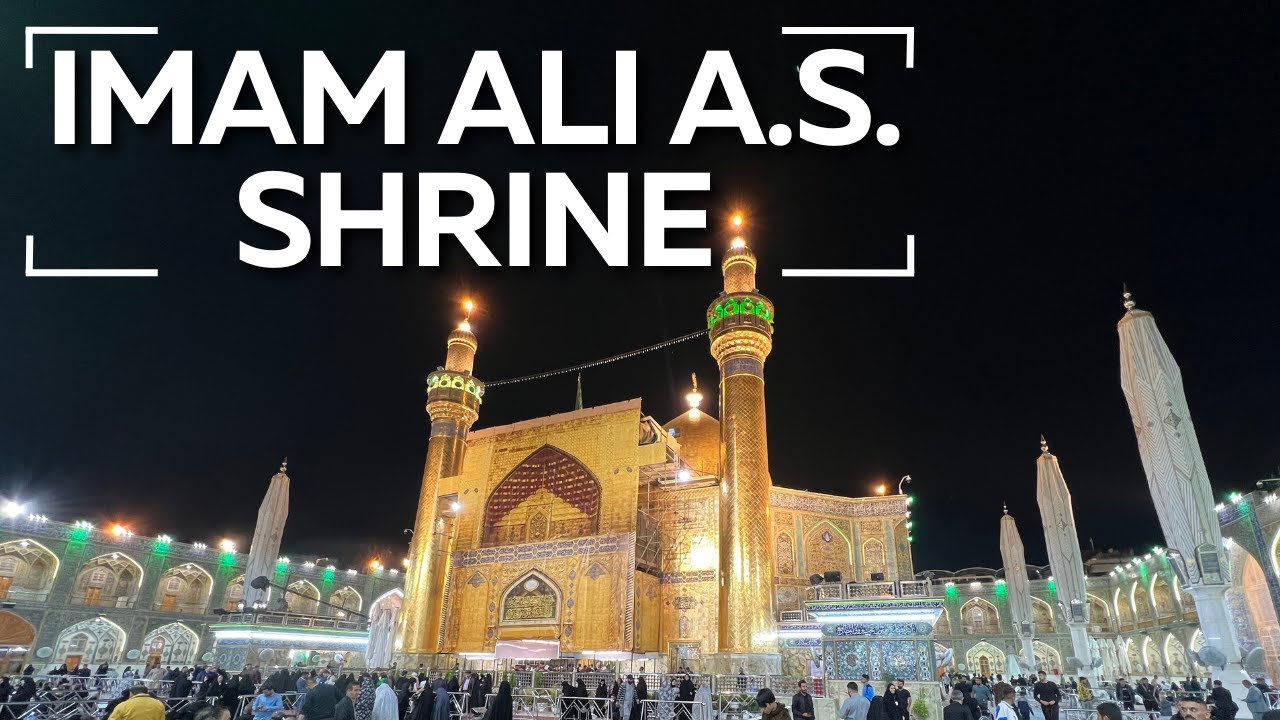Pakistanis have a particular place in their core for religious pilgrimages. These travels are acts of faith, dedication, and spiritual peacefulness rather than merely trips to sacred locations. Standing in front of the Kaaba in Makkah or finding comfort at the Imam Reza Shrine are just two examples of how these holy journeys provide an opportunity to commune with God, ask for favors, and experience a level of calm that is uncommon in daily life.
In the past, planning a pilgrimage involved a lot of paperwork and visa issues. However, religious pilgrimages with an eVisa for Pakistani travelers have become much simpler nowadays. You can now apply online, making your spiritual journey stress-free and easy. Visiting holy places in Saudi Arabia, Iraq, Iran, or Jordan is easier than ever for Pakistani travelers.
eVisa Destinations for Pakistani Pilgrims
Many nations currently use the eVisa system to facilitate Pakistani pilgrims’ access to holy sites. Your journey will go more smoothly because the conventional paperwork burden has been eliminated with the online application method. eVisas make admission easier, whether you want to see ancient monuments in Jordan, visit holy shrines in Iraq, or tour Islamic landmarks in Saudi Arabia.
The eVisas are available to Pakistani tourists in countries including Saudi Arabia, Iraq, Iran, Turkey, and Malaysia, offering a variety of religious pilgrimage options. Let’s examine these locations and how they combine spiritual exploration with many cultural activities.
Saudi Arabia: The Heart of Islamic Pilgrimage
It would be impossible to discuss religious pilgrimages without bringing up Saudi Arabia, the birthplace of Islam. Islam was born there.
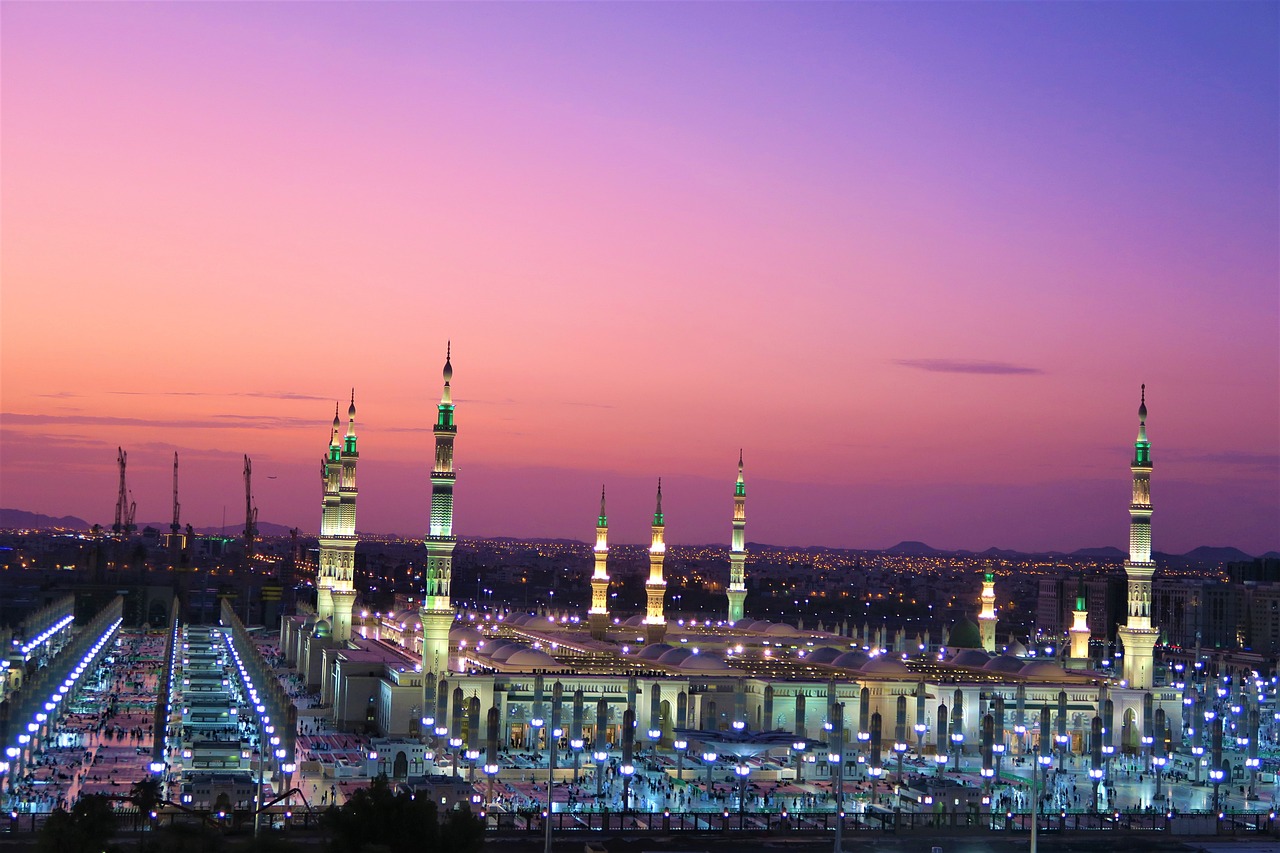
For Pakistani pilgrims, it is significant, and millions of people come here each year to connect with their faith.
Hajj
For those who can afford it, Hajj is a once-in-a-lifetime pilgrimage to Makkah and an essential aspect of our religion. It’s a profoundly transformational experience that deepens our relationship with God. But here’s the thing: because of the large number of pilgrims each year, eVisas do not yet cover Hajj.
Do not worry, though! If you want to go on Umrah, a minor pilgrimage, the process is straightforward with an eVisa.
Umrah
Unlike Hajj, Umrah can be performed at any time and provides a calm, soul-refreshing experience. With an eVisa, you can fly to Saudi Arabia to perform Umrah without the burden of long lines or complicated paperwork. It’s another ideal method for Pakistanis to reconnect with their faith and find peace in the holy Masjid al-Haram in Makkah and Masjid al-Nabawi in Madinah.
Sacred Sites
The core of Islam is represented by Masjid al-Haram in Makkah, which houses the Kaaba, and Masjid al-Nabawi in Madinah, where the Prophet Muhammad (PBUH) is buried. Imagine being in front of the Kaaba in Makkah and feeling that great connection or visiting the Prophet’s Mosque in Madinah, and you will feel an overwhelming sensation of peace.
Visiting sacred sites like the Dome of the Rock in Jerusalem and the Imam Ali Shrine in Najaf will connect you with millions of Muslims in faith. These places offer you a significant and unique spiritual journey.
Iraq: Visiting the Holy Shrines
Iraq has a rich religious heritage and contains important Shia Muslim pilgrimage sites.
Video Courtesy @The Window Seat
For Pakistani Shia Muslims, visiting these holy locations is a profoundly affecting experience that connects them to their faith in a meaningful way.
Najaf
Imam Ali, the first Shia Imam, is buried at Najaf, a city that Shia Muslims revere. Every year, millions of pilgrims visit the shrine and get deeply involved in a spirit of reverence and devotion over there.
When you pray at the shrine, you will sense a strong connection to your faith and history, providing you with an amazing spiritual experience.
Karbala
Karbala, where Imam Hussain was martyred, is considered one of the most important sites for Shia Muslims. Every year, countless numbers gather around Arbaeen to remember his sacrifice and reflect on his virtues of justice, courage, and unshakeable faith. You will feel the deep emotional power of the atmosphere and experience an overwhelming spiritual connection that stays with you forever.
Kadhimayn and Samarra
Shia Muslims also consider Kadhimayn and Samarra as sacred sites. The shrines of Imam Musa Kazim and Imam Ali Naqi in Kadhimayn, along with Imam Ali al-Hadi’s mausoleum in Samarra, hold intense spiritual significance. Walking through these places, you’ll experience a mix of history and faith, which will provide you with admiration and meditation.
Iran: Exploring Shia Pilgrimage Sites
Iran attracts millions of pilgrims each year because of its rich Shia heritage. Sacred locations across the nation have cultural and spiritual value.
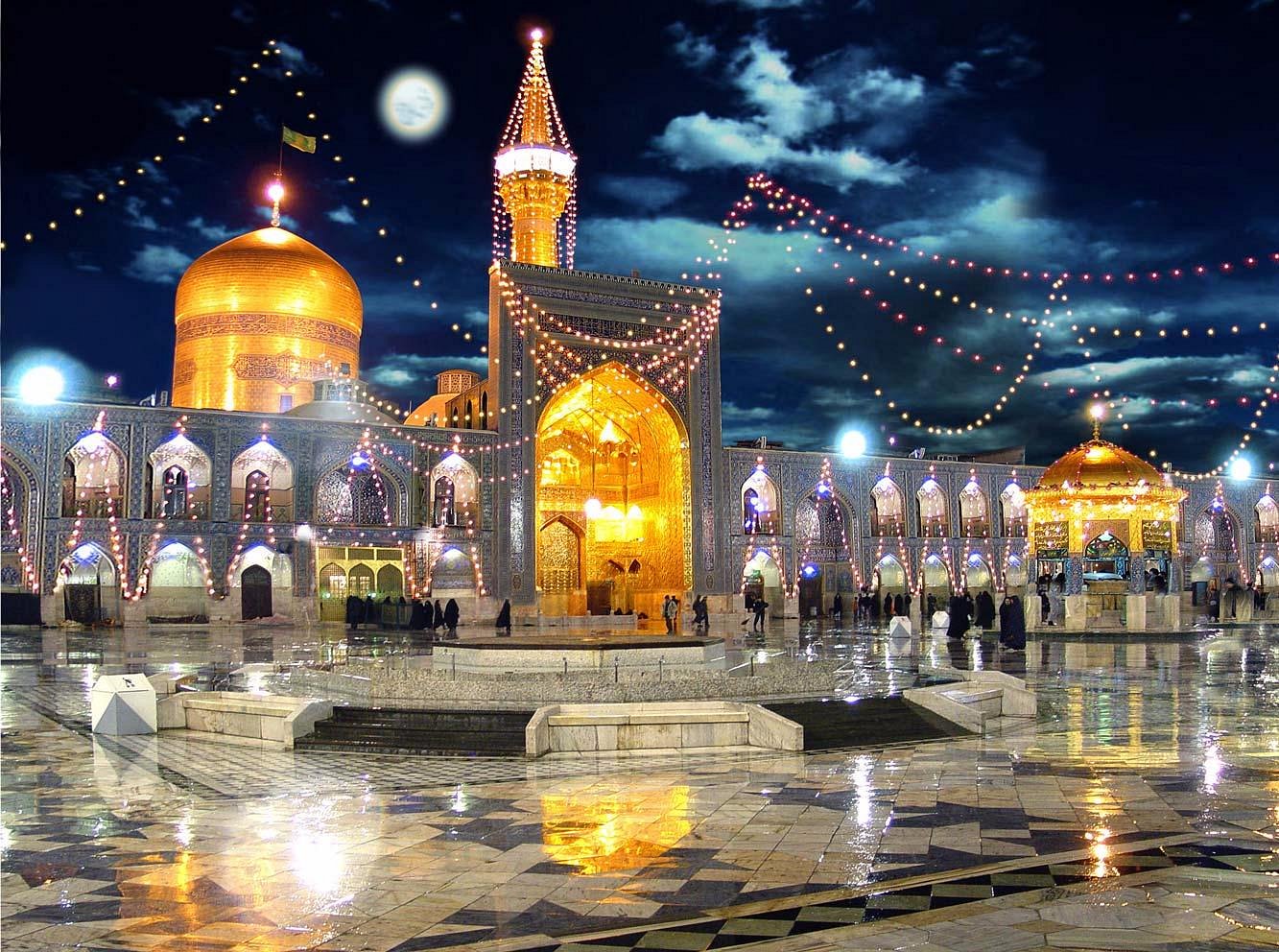
Photo Credit: tripadvisor
Pakistani pilgrims can now visit these hallowed locations with simple steps, thanks to the eVisa system.
Mashhad
One of the most significant pilgrimage destinations for Shia Muslims is Mashhad, home to the mausoleum of Imam Reza, the eighth Shia Imam. The shrine is an absolute wonder with its elaborate mosaics and gorgeous golden dome.
As you observe Imam Reza’s life and teachings, you will experience a profound sense of devotion and spirituality while wandering through the holy compound.
Qom
A popular site for religious experts and worshipers alike is Qom, home to the shrine of Imam Ali Reza’s sister, Fatima Masumeh. You will find a peaceful atmosphere at the shrine that is ideal for internalization. It is a genuinely sacred location to experience a unique fusion of intellectual energy and intense spiritual devotion.
Jordan: Discovering Biblical and Islamic History
The Bible and the Quran both have vivid stories set in Jordan. Its rich Christian and Islamic history makes it a special place to visit.

Photo Credit: tripadvisor
Jordan skillfully combines religion with cultural inquiry, and it is full of spiritual landmarks and historical sites.
Tombs of Prophets
In Jordan, you can visit the graves of various prophets, including Prophet Shoaib and Prophet Yusha. These tombs have significant value for both Muslims and Christians because they are notable leaders in their traditions. This is an excellent opportunity to connect with history and enrich your spiritual path.
Mount Nebo
Mount Nebo, where Prophet Moses is said to have viewed the Promised Land, has stunning views of the Jordan Valley, the Dead Sea, and Jerusalem’s hills. Standing there, you’ll experience an intense connection to history and biblical events. It’s an incredible spiritual experience that will never be forgotten.
Al-Maghtas
Al-Maghtas, Jesus’ baptism place, is a popular destination for Christian pilgrims. They soaked themselves in the water, following their beliefs. The combination of Islamic and Christian heritage makes Al-Maghtas an exclusive, spiritually encouraging destination for everyone
Turkey: A Blend of History and Faith
Turkey combines Islamic history and culture. From Istanbul’s mosques to Rumi’s tomb in Konya, it provides a spiritual journey filled with religion and mysticism.
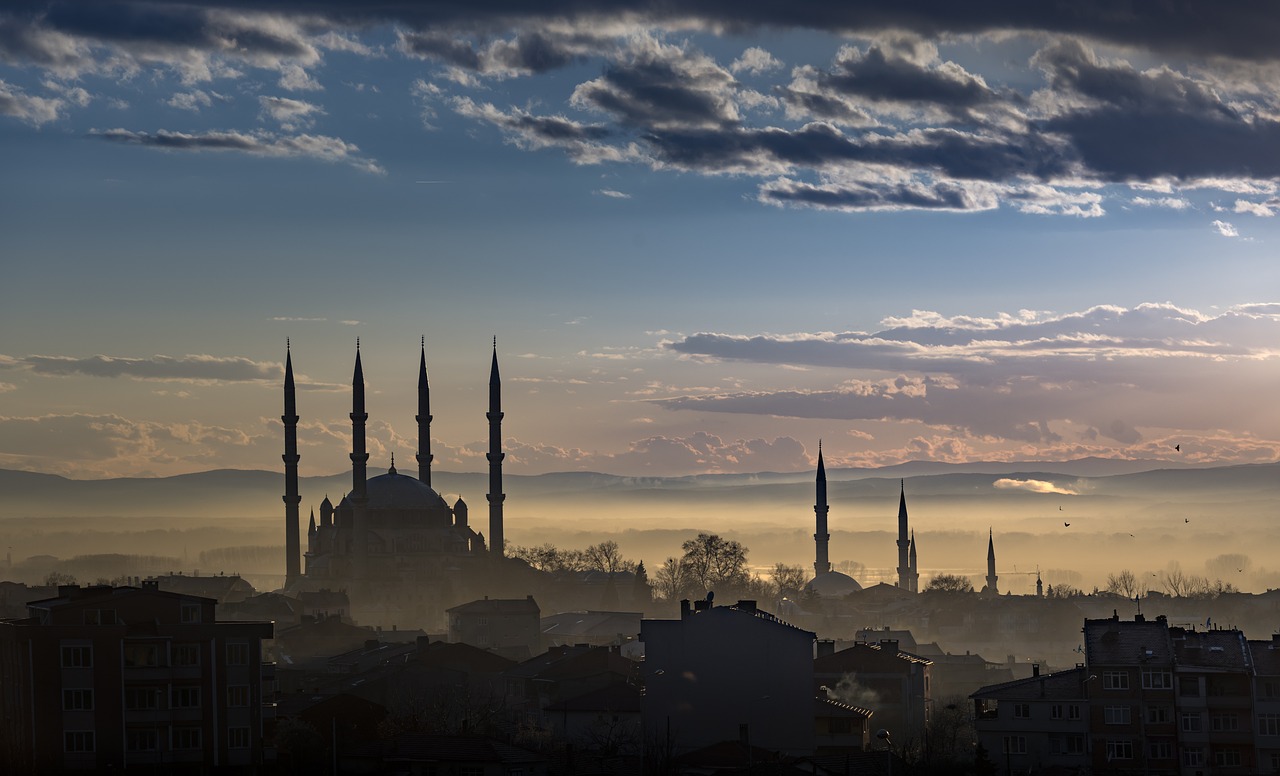
Eyüp Sultan Mosque
One of Turkey’s most important places of worship is the Eyüp Sultan Mosque in Istanbul. Pilgrims come to pay tribute to Prophet Muhammad’s friend Abu Ayyub al-Ansari. The mosque is an excellent spot for prayer and meditation because of its serene surroundings.
Mevlana Museum in Konya
For those seeking both spiritual comfort and cultural diversity, Konya, also known as Rumi, is a popular destination. Rumi’s grave is housed in the Mevlana Museum, which attracts pilgrims from all over the world who want to learn more about this renowned mystic’s teachings.
Other Landmarks
From the Blue Mosque to the magnificence of Suleymaniye Mosque, Turkey artfully mixes the beautiful with the sacred.
Azerbaijan: The Land of Fire and Spiritual Significance
Although it might not be the first place that springs to mind for a trip, Azerbaijan provides a fascinating combo of ancient and Islamic religious monuments.
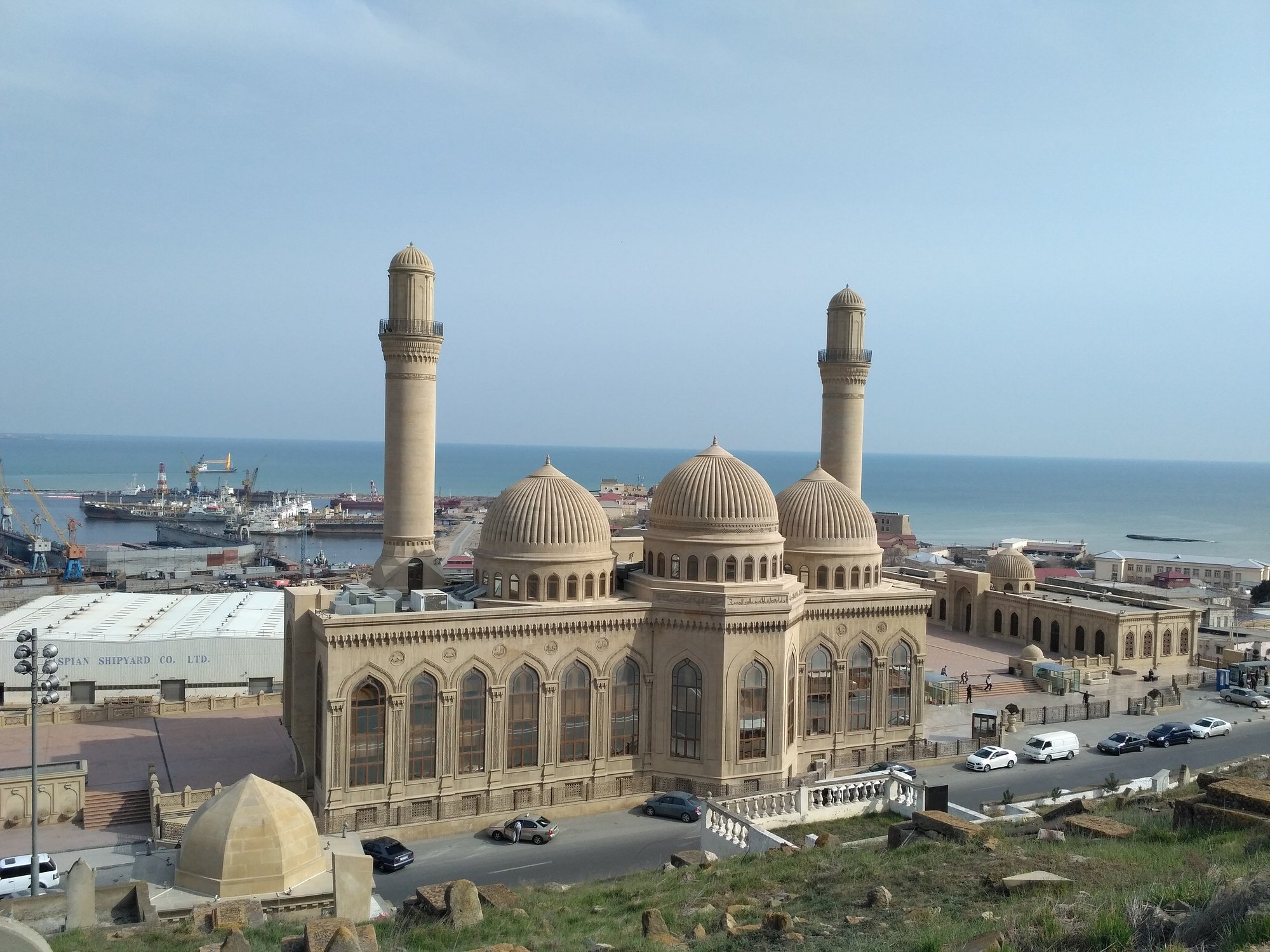
Photo Credit: tripadvisor
Bibi-Heybat Mosque
One of the most important Islamic sites in Azerbaijan is the Bibi-Heybat Mosque in Baku. Imam Ali’s mother, Fatimah, is honored by pilgrims. It’s worth seeing on your tour because of its breathtaking architecture and decisive spiritual significance.
You’ll also find religiously significant cultural sites in Ganja and Baku’s Ashurkhana.
Malaysia: Islamic Heritage in Southeast Asia
For pilgrims seeking spiritual rejuvenation, Malaysia is an excellent destination since it offers an intricate web of Islamic culture and legacy.
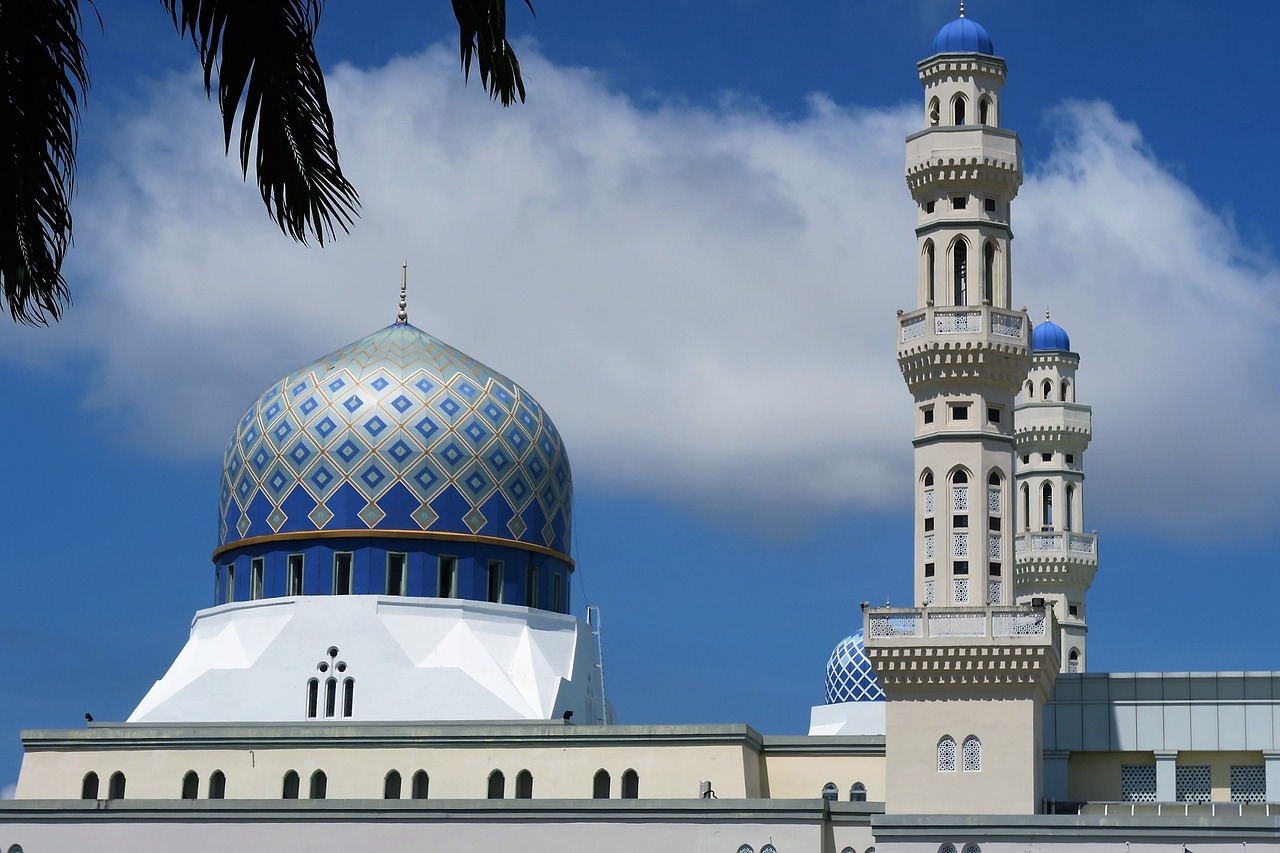
National Mosque of Malaysia
For any pilgrim traveling to Malaysia, the Masjid Negara in Kuala Lumpur is a must-see and a representation of Islamic culture. Prayer and reflection are ideally facilitated by the mosque’s exquisite design and pleasant atmosphere.
Islamic Arts Museum
If you are interested in history and culture, visit Kuala Lumpur’s Islamic Arts Museum. Explore the rich legacy of Islamic art and artifacts in this fascinating location.
Travel Tips
- Make reservations in advance, particularly during the busiest pilgrimage seasons.
- Learn about the dress regulations, prayer times, and other customs of each nation.
- Visit during Ramadan, Arbaeen, or Muharram for a more authentic experience, but be ready for crowds.
- Travel with authorized tour groups for easier access to shrines in countries like Iran and Iraq.
- Combine your pilgrimage with iconic sites like Petra (Jordan), Cappadocia (Turkey), or Langkawi (Malaysia).
Conclusion
With eVisas, Pakistani pilgrims can now easily explore sacred destinations from Saudi Arabia, Iraq, Iran, Jordan, Turkey, Azerbaijan, and Malaysia, each offering an original combination of spirituality and culture to discover.
As you plan your next pilgrimage, remember that the journey is as transformative as the destination. With a few clicks and some heartfelt prayers, your path to spiritual discovery awaits. Check the Pakistani eVisa requirements online, plan your trip, and get ready for a journey filled with peace, reflection, and a deeper connection to your faith. Safe travels.
